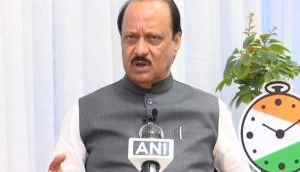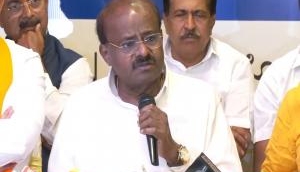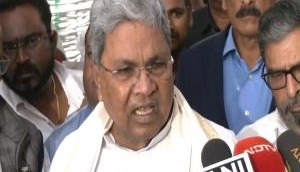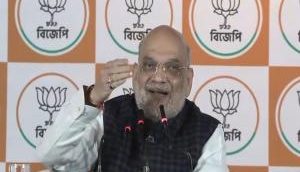
The Supreme Court's Dipak Misra-led bench held that the criminal defamation law doesn't have a chilling effect on the Freedom of Expression. And, the right to life, guaranteed by Article 21 of the Constitution, also includes the right to reputation.
Last year, the Supreme Court, and the same bench, held, in the Devidas Tuljapurkar case (in which he was accused and held guilty of defaming Gandhi just because he published a poem by a Dalit poet - Mee Gandhi Bhetla) which took a strong exception to how the 'Father of the Nation' actually worked against Dalits' interests. A relook of the Poona Pact (1946) between him and Ambedkar gives a clear indication of that.
And it remains a fact that under Article 19 (2) of the Constitution - which delineates and describes how the freedom of expression right can be curtailed on the grounds of explicitly defined "reasonable restrictions", does NOT include "historical figures", but the Supreme Court surged ahead and created a new law which is not in the Constitution.
Subramanian Swamy, Rahul Gandhi, Arvind Kejriwal and the Foundation for Media Professionals had challenged the constitutional validity of Section 499 of the Indian Penal Code, which criminalises any damage or harm to a person's reputation.
This provision is based essentially upon a person or a company's (which is also regarded as a "person" in law) perception, but can have devastating consequences on the Fundamental Right to Freedom of Speech and Expression.
A distinction needs to be made here. Political speech and political discourse, which seems to be plumbing new lows in India, still ought to be protected, if nothing but for the sake of democracy. Even MPs' and MLAs' diatribes are granted protection by the rule and convention of absolute privilege, but only if made in Parliament.
But a more vexing question is how the powerful intimidate the media into silence. The role of the Fourth Estate is to hold the powers-that-be's feet to the fire, and the way in which the criminal defamation law is administered and executed, contributes only to intimidating journalists into silence.
The Supreme Court's reasoning in the judgement is yet to be made available to the public, but nonetheless, it, unless overturned, is bound to remain as a craw in the throat of those advocating and crusading for media freedom.
It is pertinent to mention here that 10 journalists, under the aegis of the Foundation for Media Professionals led by veteran journalist Manoj Mitta (of the Times of India) had also made detailed representations before the top court, but the latter seems to have sided with the present government in power, whose legal representative argued (and his contentions prevailed) that the right to Freedom of Expression is not absolute.
Free speech absolutists would of course argue that a criminal law is both unnecessary and undemocratic when alternative civil law remedies are available. But, then it also remains a fact that in India, where the society and polity are rife with inequities, only the criminal law acts as an effective deterrent. For instance, take the case of terror-accused who are branded as "terrorists" the moment they are arrested by the cops- their acquittals, coming as they are after prolonged years- rarely find media coverage.
What about them? Civil law defamation suits cost a bomb, and they serve as no deterrence to a media which is mainly agenda-driven and often resorts to unethical (and illegal) tactics to gain eyeballs and TRPs.
The 13 May apex court ruling ensures that many vexing questions remain pending.
Addendum
The judgement was reserved on 13 August 2014.
At the Sue the Messenger book launch, Fali Nariman said that he has a "shrewd suspicion" as to why the judgement has been kept pending - that the SC is not that keen upon FoE, especially that of the media and the Fourth Estate.
First published: 13 May 2016, 2:35 IST







![BJP's Kapil Mishra recreates Shankar Mahadevan’s ‘Breathless’ song to highlight Delhi pollution [WATCH] BJP's Kapil Mishra recreates Shankar Mahadevan’s ‘Breathless’ song to highlight Delhi pollution [WATCH]](https://images.catchnews.com/upload/2022/11/03/kapil-mishra_240884_300x172.png)

![Anupam Kher shares pictures of his toned body on 67th birthday [MUST SEE] Anupam Kher shares pictures of his toned body on 67th birthday [MUST SEE]](https://images.catchnews.com/upload/2022/03/07/Anupam_kher_231145_300x172.jpg)






